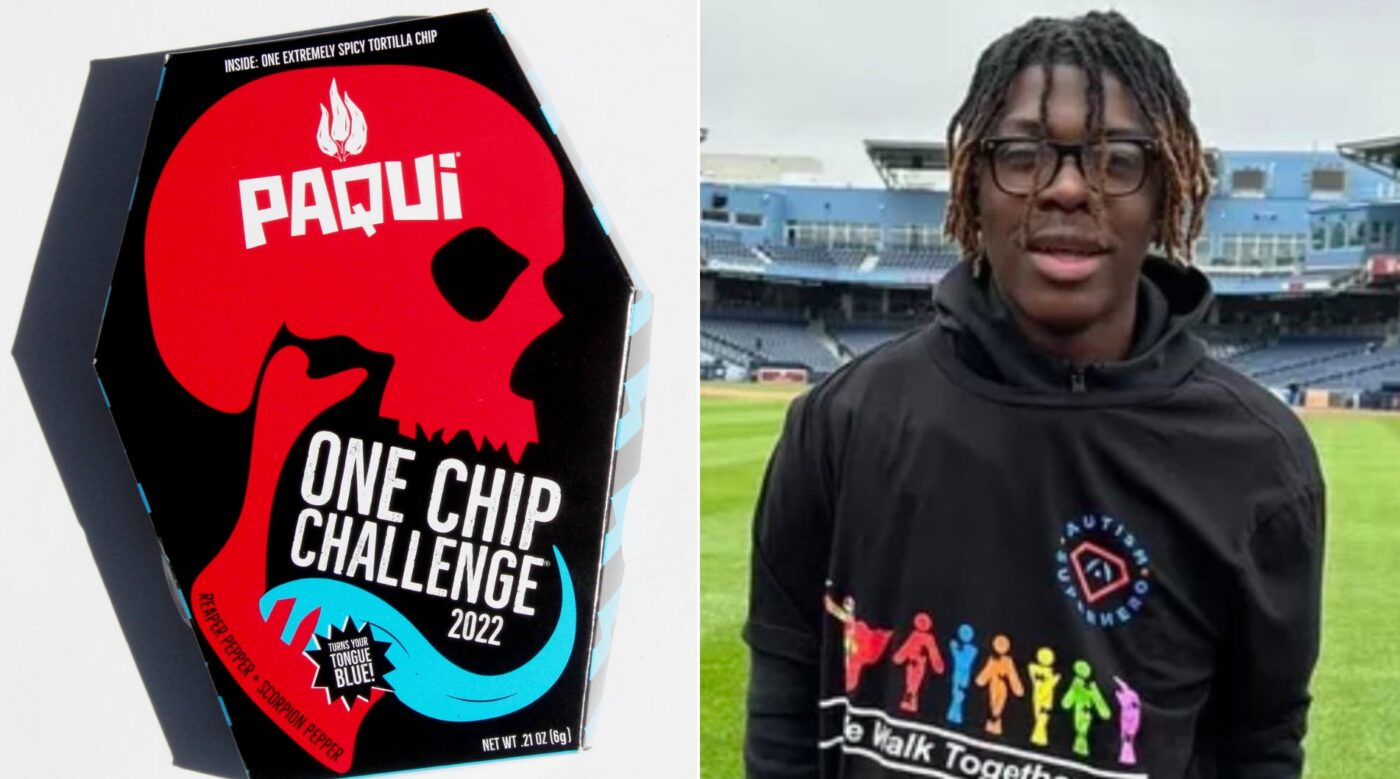The tragic consequences of the ‘One Chip Challenge’ that caused an American teen’s death have resulted in a halt in production as his family blames the viral dare and capsaicin danger.
There’s no denying that teenagers have a habit of subjecting themselves to unnecessary risks in the name of mischief — just take the teen detained for ‘skiplagging’ or the teen who pulled a ‘Mission Impossible’ as prime examples — but rarely do they result in such tragic consequences as this.
The dare-devil “One Chip Challenge” — a spicy tortilla chip test that has swept social media — took a decidedly sombre turn in recent days. Paqui, the Texas-based manufacturer of the infamous chip, has halted its production after the untimely death of a 14-year-old boy from Massachusetts, Harris Wolobah, as reported by 9News.
Although Harris Wolobah’s exact cause of death last Friday is still awaiting confirmation, his family firmly believes that the fiery chip challenge is to blame. Sold for roughly $10 USD, each chip comes in a coffin-shaped box and cautions consumers about the “vengeful pleasure of intense heat and pain” within, emphasizing that the snack is for adult enjoyment only.
WATCH: YouTubers have been trying the challenge for months.
Paqui, a division of The Hershey Company, expressed profound grief over Wolobah’s passing. A statement on their website read, “We are deeply saddened by the death” and went on to discuss the alarming trend of teenagers ignoring the stark warnings on the product.
Authorities in Massachusetts have heightened warnings as a result of this incident. Worcester County District Attorney, Joseph Early, admonished parents to educate their children on the potential dangers of the challenge. He highlighted that the chips are primarily meant for adults and cited reports of hospitalizations, including teens, from other parts of the country.
Numerous incidents across the nation attest to the dangers of the challenge. Three students in California were hospitalized, while another episode in Minnesota saw seven students fall ill. The primary culprit? Capsaicin, the chemical in pepper spray, which lends the chip its intense spiciness.
Dr. Peter Chai, a renowned toxicologist, shared his insights with Yahoo News:
“At high doses, capsaicin can lead to fatal dysrhythmia or irreversible heart injury.”
Dr. Peter Chai
Harris Wolobah’s tragic story seems to align with this warning. Authorities reported finding him “unresponsive and not breathing” at his home. He was rushed to the hospital but was pronounced dead on arrival.
His community is rallying together, with calls to banish the chip from store shelves. Douglas Hill, who oversees the basketball league Wolobah was a part of, said this:
“The conversation now is about the chip, but there will be other challenges coming, and we want to ensure children know they shouldn’t be participating in anything hazardous.”
Douglas Hill
While the packaging of the “One Chip Challenge” urges the buyer to film their reaction and post it online, the haunting question remains: At what cost? The risks associated with this challenge are becoming increasingly clear, with warnings against consumption by those with sensitivities or medical conditions.
The loss of a young life has cast a long shadow on what many deemed a harmless social media challenge. As we navigate an ever-evolving digital age, one can’t help but ponder the inherent risks of viral trends.
